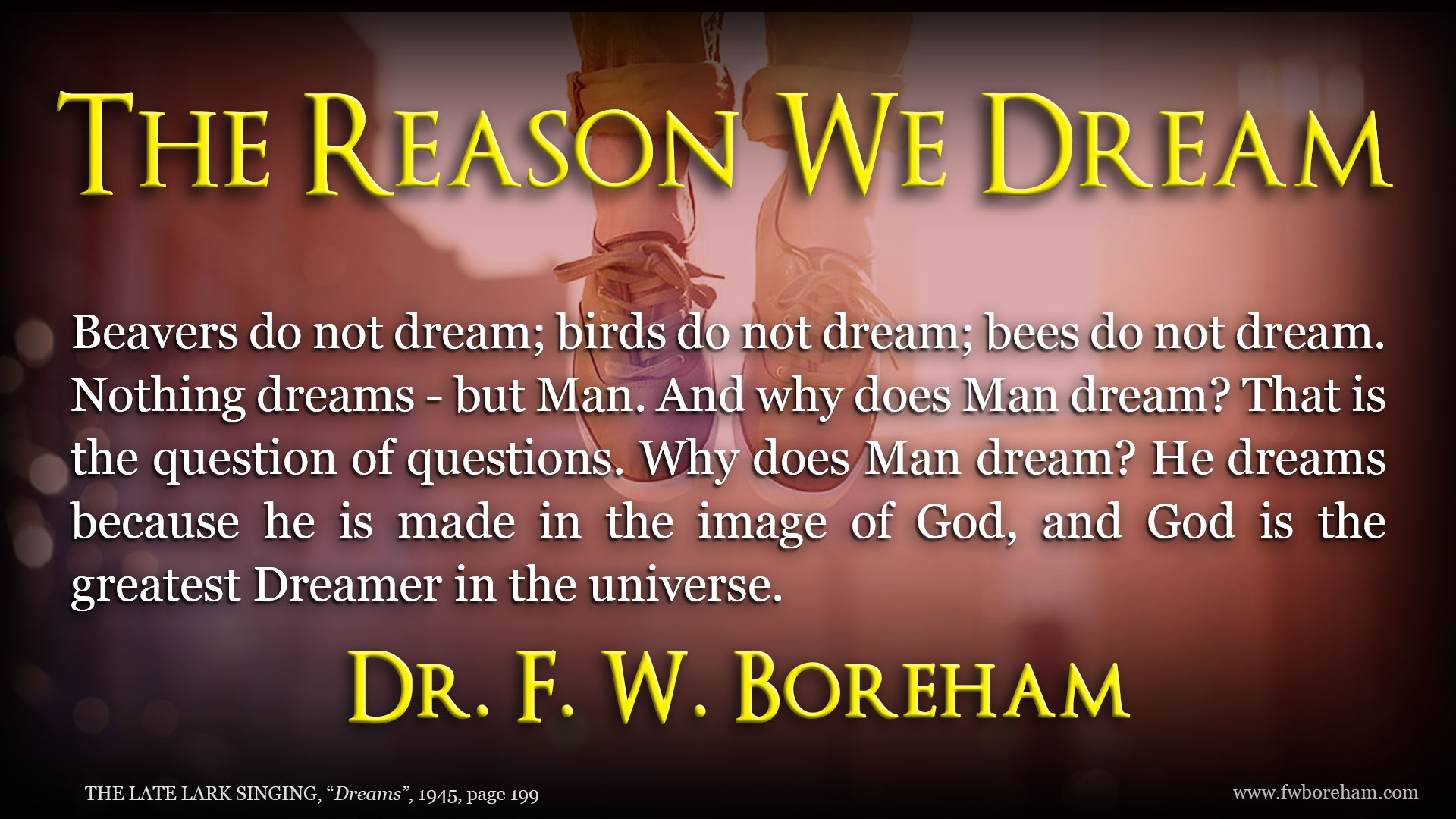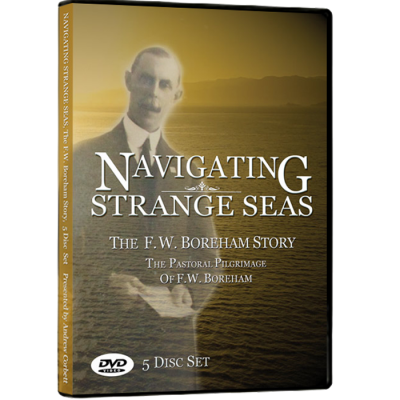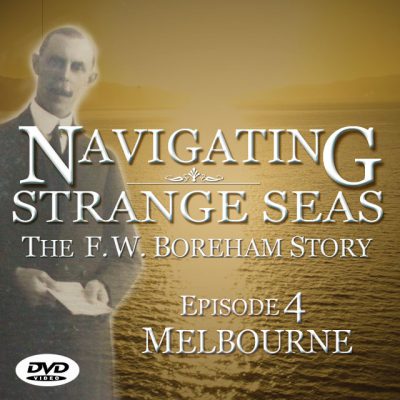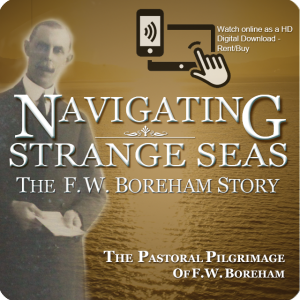home > books by FWB > 1945 A Late Lark Singing > Dreams
Chapter VIII
DREAMS
Concerning dreams, it is safe to make two introductory affirmations. The first is that the most ecstatic and the most terrifying moments that we have any of us spent were spent in dreams. The second is that we have each of us, at some time or other, been profoundly influenced by a dream.
By dreams we usually mean night-dreams, the dreams that punctuate our slumbers. But the study of such dreams is a treacherous and elusive one. It is so difficult to account for dreams. They may have their root in inspiration, but then again, and just as probably, they may arise from indigestion, They are wayward things, subject to no fixed laws. If they come, they come; if they don’t, they don’t; there is nothing that we can do about it.
Yet, beyond the shadow of a doubt, the dreams that come by night have their sublime side. What was it that Elihu said to Job? God speaketh once, yea twice; yet man perceivetb it not. In a dream, in a vision of the night, when deep sleep falleth upon men, in slumbering upon the bed; then be openeth the ears of men and sealeth their instruction. Some years ago, in order to write my volumes on Texts that made History, it was my duty to study closely some hundreds of classic conversion stories. It was a most stimulating and memorable investigation.
And one of the things that deeply impressed me at the time was the fact that, in so many of these cases, a dream played an important part,. It may be argued, of course, that, since the man was so harassed and worried by tormenting thoughts of sin and God and heaven and hell, it was the most natural thing in the world that he should dream weird, fantastic dreams concerning such things. The argument is unanswerable; but the fact remains that, whether as a result of the operation of natural causes or as a result of special interposition, the dream came, and, in coming, assisted in the precipitation of a spiritual crisis.
It has to be remembered, however, that a dream, even if divinely sent, is a purely personal matter between God and the dreamer. Like all other mystical manifestations of the divine grace and power, it carries little or no conviction to anybody else. There is, for example, such a thing as the assurance of salvation, A man may reach complete certainty as to his own interest in the Cross of Christ. He may be absolutely sure that his sins are all forgiven, that he is a child of God and that his name is written in the Lamb’s book of life. But the mysterious and subjective evidences that convince him will convince nobody else. His radiant spiritual experience is a secret between God and himself. He can only prove to others what has been divinely proved to him by its practical effect upon his daily life.
So is it with dreams. The dream may convince the dreamer; but it is of no evidential value to anybody but himself. When Mr. Wesley returned from his fruitless visit to America, the ship anchored in the evening. In the roadstead lay another vessel just about to sail for America. Mr. Wesley learned that Mr. Whitefield was on board that vessel. He was very distressed; for he particularly desired to have Mr. Whitefield’s company in England. Early next morning, he sent a messenger by a boat to the other ship. ‘Tell Mr. Whitefield’, he said, ‘that I have had a dream during the night and that it has been made clear to me that he is not to go to America!’ George Whitefield received the message and paced the deck for a moment or two in deep thought. ‘Go back to Mr. Wesley’, he said to the messenger, ‘and say that, if God had wished me to turn back, He would have given me the dream! Why should He send the dream to Mr. Wesley?’ And he calmly went on with his tour.
II
But man’s most sublime dreams are his day-dreams. The masterpieces of literature are, for the most part, dreams. Dante’s Divine Comedy is a series of dreams-The Vision of Hell, The Vision of Purgatory, The Vision of Paradise, and so on. Milton’s Paradise Lost is a glorious dream – a dream of cherubims and seraphims, of angels and archangels. And, of course, Bunyan’s immortal allegory is a dream.
But the dreams of men are not all bound up in books. Few of them, indeed, find their way into literature. In his Song of the Engineers, for example, Mr. Berton Braley sings:
We are members of an order that is guided on by dreams,
By the voices of the prophets and the seers,
And, unless you care for service more than money-getting schemes,
You had better never join the Engineers.
‘Members of an order that is guided on by dreams!’ I like that. As in the case of Dante’s masterpiece and Bunyan’s and Milton’s, the poem that we call the Panama Canal was first of all a dream.
So was the Sydney Harbour Bridge; so was the Nile Dam; so were all the works of the master-engineers. Before a single sod was turned, or a stone quarried, or a hammer raised, the titanic structure existed in its entirety in somebody’s inner consciousness.
It is here that man rises sublimely from the plane of the beasts, I suppose that, in common with ourselves, animals have their night-dreams. Jack London, who seems to know all that there is to be known about the inner life of dogs and wolves-their secret thoughts and feelings-says that dogs dream. But their dreams are always of the Past — the remote Past, with its race-memories of the forest primeval, or the immediate Past, with its recollections of cosy rugs, noble feasts, and fond caresses. But they never dream dreams of the Future-such dreams as fire the fancy of the architect and the engineer.
There are few triumphs of constructive ingenuity more amazing than a beaver’s dam, an eagle’s nest, or a bee’s comb. Yet about these wonders of the builder’s skill, two things must be said.
The first is that there is nothing to show that the beavers that are constructing their dams at this moment on the upper reaches of the Susquehanna are building those dams any more cleverly than the beavers that were operating there in the days of the Pharaohs; there is nothing to show that the eagles that are building their nests at this moment among the lofty crags of our Australian Grampians are building those nests any more cunningly than the eagles of which Moses and David sang; there is nothing to show that the bees that are framing their exquisite little cells of wax in our modern hives are doing it any more daintily or symmetrically than the bees that earned for Palestine the name of ‘a land flowing with milk and honey’.
And the second thing that must be said is still more significant. Can anybody imagine a beaver, squatting on its haunches beside some American waterway, watching the other beavers building a dam, being suddenly inspired by a magnificent vision? He sees at a glance that the methods being employed below him are hopelessly out-of-date. He is fired by a conception of bigger, better, brighter dams! He communicates his exciting idea to his companions! The whole system of dam-construction is revolutionized on the instant!
Can anybody imagine an eagle, perched on some dizzy eyrie among the Grampians, watching a pair of eagles building their nest on a shelf below, being suddenly seized by an inspiration? He Sees in a flash how a far finer nest could be built in half the time! Of course! He communicates his discovery to the other birds; and, from that moment, all the processes of nest-building are revised and re-cast!
Can anybody imagine a contemplative bee pondering the absurdity of perpetuating endlessly the methods of antiquity? Why should these shapely little cells be so slowly and laboriously fashioned? Why not turn them out by mass production? To be sure! And from that date the apiaries of the world are transformed!
No; we cannot imagine such scenes. Beavers do not dream; birds do not dream; bees do not dream. Nothing dreams – but Man. And why does Man dream? That is the question of questions. Why does Man dream? He dreams because he is made in the image of God, and God is the greatest Dreamer in the universe.
Man is a dreamer. God is a dreamer. And of what do they dream? They dream of each other. Man is for ever and for ever dreaming of God. No race or tribe has ever been discovered so barbaric and degraded that it has never received or conceived any vision of the Most High. And, as the Bible shows by its progressive unfoldings, God has been eternally dreaming of Man.
Like a pair of lovers, these two-Man and God: God and Man – have been dreaming through the ages of one another; and, the more they have become alienated from one another, the more romantic and tantalizing their dreams have become.
Man dreams of God. It shall even be, Isaiah says, as when a hungry man dreameth and behold he eateth, but he awaketh and his soul is empty.
Humanity is characterized by two tremendous factors— its hunger and its dreams. Man is hungry, desperately hungry. Come upon him where you will, and, savage or sage, you will find him craving something beyond him, something above. And, hungry as he is, he dreams. He dreams of universal conquest. He reads the secrets of the stars; he wrests the records from the rocks; he rides above the clouds; he sails beneath the seas; he flings his messages into infinite space; and, still unsatisfied, he dreams of flights yet more daring.
There lies on my desk at this moment a copy of The Great Hunger, by Jorian Bojer. John Galsworthy thought it one of the most notable novels written in our time. It is, of course, a Norwegian story, the story of Peer Holm, a boy whose birth was the shame of his parents and who had very little in the way of an upbringing. His was a rough boyhood. Whilst still very young, he cherished a passionate desire to be a priest, not because of any strong religious convictions, but because of a quenchless longing for something that, as a priest, he fancied he might find. He loved metals and, lured by his fancy, drifted into an engineering shop. But everything that he touched seemed instinct with subtle suggestions of something greater behind it-the something for which he was so hungry.
Becoming a famous engineer, he was sent abroad to build great dams and bridges and aqueducts. But every new triumph of his skill fastened upon his mind two convictions. The first was that, in actual fact, he was a priest after all-a priest in steel. By all these masterpieces of his he was simply reaching out hands into the infinite and harnessing its mystic powers to the needs of his fellow-men. And the second conviction amounted to a sense of frustration and dissatisfaction. Even though the world was ringing with his praise, he felt that he had only touched the fringe of things. There was something beyond-the something for which he had hungered as a boy.
He married. Nothing could have been more beautiful than his wedded life with Merle. He loved her with all his soul and she loved him just as devotedly. Three children came into their home, and, if any man should have been happy, Peer should have.
Yet his joy was clouded. He felt that there was something behind the love of his wife, a greater love of which it was only an outward and visible expression. If only he could find, not merely happiness, but the source of his happiness!
Peer loses all his money: he and his Merle are reduced to poverty: they have to send two of their children away: they are left in a cottage with their youngest, a girl. They do not rebel: have they not still each other and little Asta? Yet the hunger is still there.
In their lowliness they have an enemy. The brazier, who lives next door, is a wizened little creature who, hating everybody, is by everybody hated. He owns a big ugly wolf-dog, and one day the horrid beast flies at little Asta and kills her. Peer and Merle seek comfort in an intensified affection for each other. But it is enough. Peer still craves something intangible, inaudible, invisible -something beyond.
One day he looks from his window on the brazier’s unsown field. Why is it unsown? It is unsown because the brazier is too poor to buy seed. He begs for some; but the people detest him too much to give him any. Peer has a bag of barley. Why not sow it in his neighbour’s field? He rises in the moonlight. Merle, not grasping his purpose, is frightened and insists on accompanying him. The ground is wet after recent rain. Peer sows the barley in the brazier’s field. But why?
That is the question: why? It is not for his own sake; what has he to gain by it? It is not for the brazier’s sake; he hates the very sight of the man, as does everybody in the district. Then why has he done it? He must have been moved by some impulse-an impulse from a source outside himself! From what source? And so, in sowing his seed in his neighbour’s field, Peer Holm at last finds God. And then he realizes that it was for God that he had always hungered; it was of God that he had always dreamed!
And God dreams of Man. Think of the divine dream of the making of Man-a thing of almost boundless intellect and of terrifying prerogatives! Think of the divine dream of the immensities of Creation! The most splendid palace that any Oriental bridegroom planned for his queenly bride becomes microscopic and infinitesimal as we contemplate this network of infinities in which God designed to dwell with Man.
Think of the divine dream of the Redemption of Man. We say that Christ died on Calvary. But he is the Lamb slain from the foundation of the world! Before a flower bloomed or a bird sang, God was dreaming His dreams of Paradise Regained. Or look at another of these classical redemptive phrases, He shall see of the travail of His soul and shall he satisfied, says the Prophet concerning the Suffering Saviour. The travail of His soul! What dreams a woman dreams concerning the baby that is coming! And the dreams that she dreams when it is coming fit her to see in it, when her travail is past, a beauty that no other eyes can detect. He shall see of the travail of His soul. And when He sees the Church of His travail, He sees in it the Church that nobody else sees, the Church of His dreams, the Church that satisfies and delights Him!
And think of the divine dream of Heaven! Here it is at the end of the Bible! The Bible itself is a dream-a dream that ends in a dream. It ends in a dream because the reality is so radiantly and divinely beautiful that only in dream-lore can its wonders be expressed. So, here you have the two inveterate dreamers-God and Man! A man’s most glorious dream is the dream of himself as God dreams of him. Like Tennyson, in Maud, we sigh:
Ah, for a man to arise in me
That the man I am may cease to be!
And the essential wonder of the everlasting gospel is that the divine dream concerning me-the dream that corresponds with my choicest dreams concerning myself-may be realized! Jesus came into the world to seek and to save me; to set me free, that is to say, from the tyranny of sordid actualities and lift me to the level of my loveliest dreams.
-F.W. Boreham










